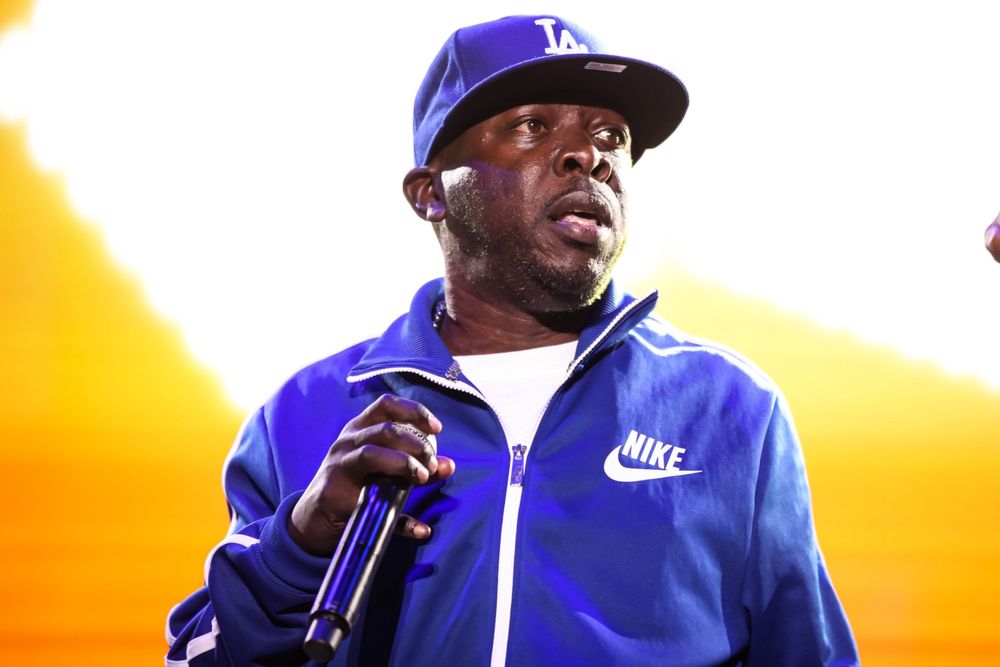More so than other years, 2020 has been encapsulated by grief. Confinement borne of an unforeseen pandemic has forced most of the world to wallow in the depth of its losses and empowered this anguish to strangle us in its isolating grip until it knows most of us by name. Poet Cheryl Boyce-Taylor, however, has been walking this path of grief for years — ever since her beloved son, A Tribe Called Quest’s Malik Izaak “Phife Dawg” Taylor, lost his long fight with diabetes in 2016.
Taylor speaks grief’s language. She has an intimate familiarity with how the waves of emotion can crescendo into maddening heights, giving way to the empty ache left behind. That closeness gives way to clarity in her newest book: Mama Phife Represents, a delicate latticework of remembrance out this week that explores the days following Phife’s passing in print, photo, and sketch. In doing so, it finds a way to reexamine and reshape how we honor our beloveds in both life and death.
The practice of elegy — rooted in the ancient Greek word elegos, meaning “mournful song” — is a time-honored classical tradition, commonly served in the form of the elegiac couplet. It’s the framework in which English Renaissance poet Ben Jonson laments the loss of his first son, the means by which American great Walt Whitman honors Abraham Lincoln in the oft-referenced “O Captain! My Captain!” But conventions are made to be broken, and the mother of the Funky Diabetic, whose group made its indelible impact in hip-hop with transcendent, unorthodox projects such as People’s Instinctive Travels and the Paths of Rhythm, delivers nothing less than an offering that honors her familial legacy. The book moves between couplets and freeform prose, pivoting to anecdotes, lyrics, and dreams with an ease and musicality that transport you between the worlds of Malik the man and Phife Dawg the persona—the universes of Linden Boulevard, the superstardom of Tribe, and the cultural anchor that remained in their homeland of Trinidad and Tobago.
“Words light life’s path,” Boyce-Taylor writes, and Mama Phife Represents evokes that repeatedly as she sifts through being a Black mother sharing her mourning with the rest of the hip-hop world — a designation that unfortunately exists more often than it should with the families of Pop Smoke, Nipsey Hussle, and Juice WRLD knowing similar loss in recent years. In “When Her Child Dies 1 & 2,” she clings to the sweet memories of his childhood and sinks into the desperation of rage; she honors his immense talents and fantasizes of a life deferred in “One Braid Down She Back,” takes pilgrimages in “Apricot Begonias,” and snarls at God to make her whole again in “Stone.” On every page, the toll is felt, her journey through melancholy made tangible, fragmented, heartbreaking.
For those seeking a deeper glimpse at the inner workings of A Tribe Called Quest, you may be disappointed: This is not a tell-all. While hip-hop may be its backdrop, Mama Phife Represents remains a love letter between mother and son, faithfully honoring a maternal storytelling tradition.
This doesn’t outweigh the beautiful stretches of praise to be found in Mama Phife Represents. Malik, in her words, was a man who learned to make spells with rap music to keep his blues at bay, harkening back to the unforgettable Phife Dawg verses that made him the Five Foot Assassin, Native Tongues’ original rudeboy. In her poem “Battle Rap,” she inhabits that skin herself, incorporating the patented musical lilt of Trini Creole in stanza form as Phife did in various moments throughout his career.
For those seeking a deeper glimpse at the inner workings of A Tribe Called Quest, you may be disappointed: This is not a tell-all. While hip-hop may be its backdrop, Mama Phife Represents remains a love letter between mother and son, faithfully honoring a maternal storytelling tradition. Outside of the occasional unavoidable allusions to moments of tension within the group, the story focuses on the totality of Malik’s personhood. He lived a full life of love, fatherhood, community-building, and deep cultural and spiritual development — all tenets that Boyce-Taylor explores with care and tenderness as she ruminates on her own journey in love.
More than once, the book references Sufi mystic and poet Rumi’s “Life & Death”: “look at spirit, how it fuses with earth giving it new life.” In reading it, I found myself considering how we find the spirit of our cherished family and friends in big and small ways. For Phife, as lovers of his music and contributions to the world, it may be in revisiting his discography or anticipating his posthumous album, which is scheduled to drop early this year. Yet, I also think of how 2020 turned grief into a spectacle: While the public lost the ability to communally celebrate the lives of those we lost, the families affected also lost their private moment of mourning. In the midst of that reckoning, Boyce-Taylor does more than simply remind us how one woman’s son lived up to his name. She also gently asks us to consider who the performance of public grief in celebrity is for — and how entitled we truly are to someone else’s memories.
